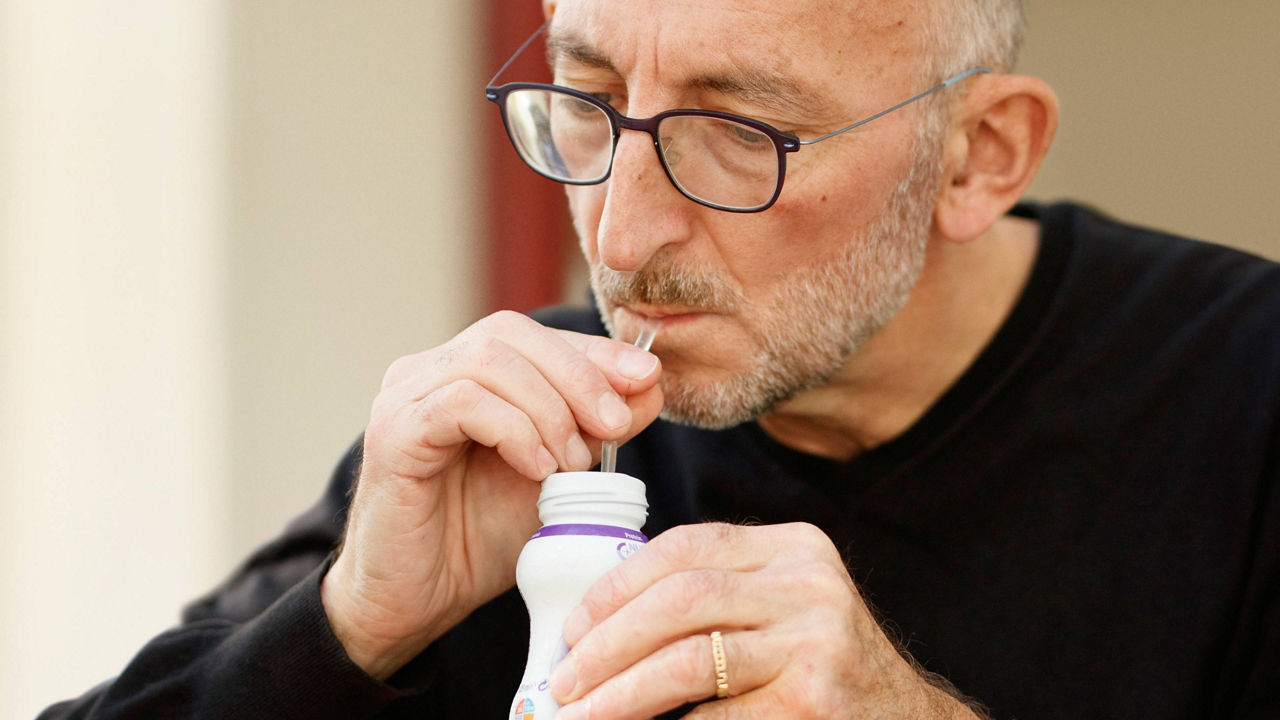Is there a cancer diet?
Whilst there are no direct cancer-causing foods or specific cancer fighting foods (‘anti-cancer foods’), there are particular nutrients that it is important to get enough of to support the body during cancer treatment. Guidelines suggest cancer patients should consume twice the amount of protein as a healthy person, in order to rebuild muscle strength6. Energy, in the form of calories, is also important6. Cancer patients also need enough micronutrients, which are key for the normal functioning of the body; vitamin D deficiency common amongst cancer patients7-8. However, in general, people tend to eat less when they are not feeling well. Because of the effects of cancer and its treatment, it can be difficult to get enough of the right nutrition from a normal diet alone to keep the body as strong as it needs to be. At this point, a healthcare team may recommend the use of medical nutrition.
What is medical nutrition?
Also known as oral nutritional supplements (ONS), medical nutrition is specially designed foods and drinks that help people with disease-related malnutrition meet their nutritional needs. Classified as ‘foods for special medical purposes’, medical nutrition must be used under the supervision of a qualified healthcare professional.
Designed to help boost nutritional intake, they should be taken in addition to what a patient is able to eat and drink rather than replacing ordinary foods and drinks. Medical nutrition is available in a range of different flavours and formats and also in a range of different nutrient compositions. This means that cancer patients can benefit from a medical nutrition regimen tailored not only to their particular nutritional needs but also to their taste and format preferences.
If a patient is unable to eat at all, some variants of medical nutrition can, when taken in sufficient quantities, be used as a sole source of nutrition as they contain all the nutrients a body needs to function. Medical nutrition can also be administered via a tube to the stomach (enterally) for those who cannot consume food and drinks via the mouth.
What types of medical nutrition are available?
Adherence to the medical nutrition regimen recommended by a healthcare professional is important so that a patient can feel the full benefits of their nutritional support. For this purpose, there are many different flavours and formats of medical nutrition so patients can select those they like best and can keep their intake varied to avoid format fatigue.
- Milkshake style available in either 200ml bottle or a 125ml bottle, these drinks are nutritionally complete, high in protein and high energy. There are also options that are high in fibre.
- Drinking yoghurt style. Similar to milkshake style, these are nutritionally complete, providing a nice alternative to milkshake style oral nutritional supplements and are available in high protein, high energy compositions.
- Juice style are generally high in energy and available in a 200ml bottle, providing an alternative for people who prefer fruit juice flavours or a change from milky oral nutritional supplements.
- Dessert style high energy, high protein oral nutritional supplements that come in 125g pots and can be eaten with a spoon.
- Powdered medical nutrition is high energy and can be mixed with milk to make a milkshake, and, because they are unflavoured, they can be added to other foods and drinks to boost nutritional content.
Medical nutrition: clinically proven to help cancer patients meet their nutritional needs
Boosting nutritional intake via medical nutritional supplements has been shown in clinical trials to benefit cancer patients in a number of different ways, for example:
- Improving nutritional intake and therefore reducing weight loss8-10
- Reducing treatment related complications8,10,11
- Longer life expectancy12
- Reducing length of hospital stay11,13
- Improving quality of life9
Medical nutrition: how much and for how long?
Every patient is different and has different nutritional needs, depending on the severity of their weight loss and/or cancer cachexia. Prescriptions or recommendations for medical nutrition are often for between 1 and 3 units or bottles a day but this varies depending on the patient’s needs.
It is also important to understand that medical nutrition doesn’t work overnight – it takes time to rebuild the strength lost through the effects of cancer. The healthcare professional managing the nutritional needs of a cancer patient should be able to advise for how long they need to take medical nutrition. It can be anything from a few weeks to a few months, or more. It is important that patients speak with their healthcare professional before stopping taking medical nutrition.




